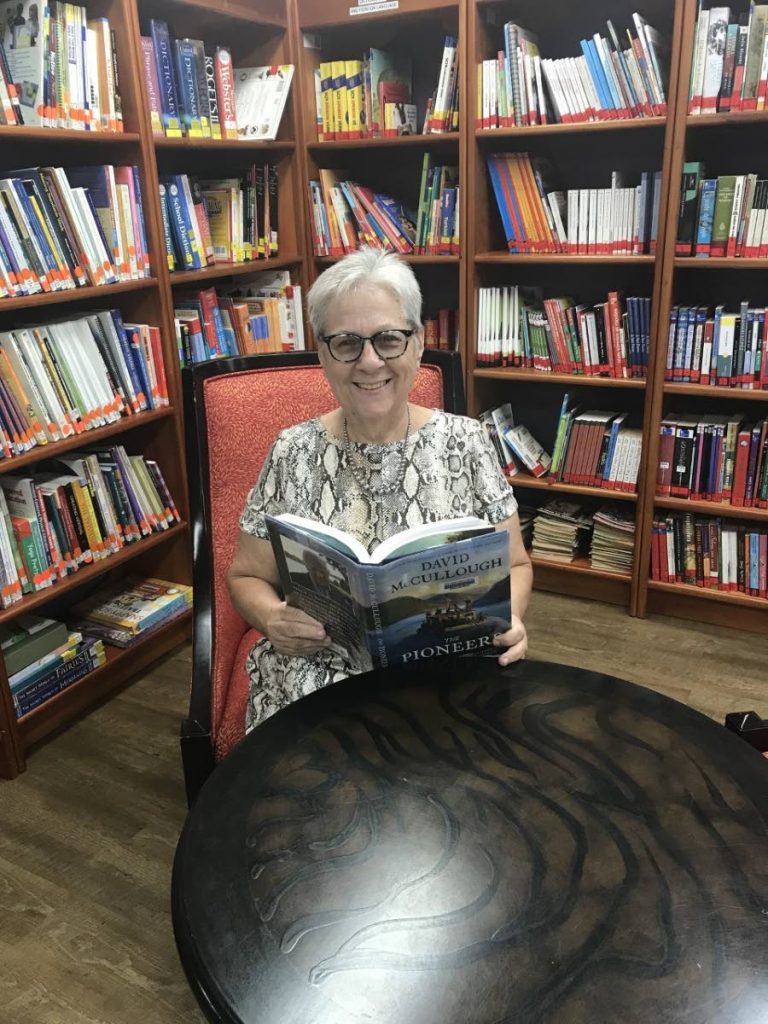Father of Caribbean publishing

MOST OF US never take the time to celebrate or even recognise the importance of our Caribbean voice so few people would have realised the historical significance of October 21. That day marked the 30th anniversary of Jamaican-based Ian Randle Publishers (IRP), the first Caribbean publishing company to provide a voice for the region’s academic writing.
The date Ian Randle chose to launch IRP couldn’t have been more symbolic. Flip the number around to October 12 and you get the day in history that marks the arrival of Christopher Columbus in the western hemisphere.
In many ways, IRP has been fighting the legacy of Columbus’s arrival, which resulted in Amerindian genocide, slavery, colonialism and the loss of the region’s voice. Randle worked to reclaim that voice by publishing books that provide the Caribbean perspective on history.
Randle, who has a degree in history, had been working for UK-based Heinemann publishers before launching IRP in 1990. James Curry’s African writers’ series inspired him to strike out on his own.
“If James could do it for Africa, why couldn’t I do it for the Caribbean?” Randle asked.
In 1991, the company published its first book, Democracy by Default by Carlene J Edie. IRP has published over 400 books to date.
On October 21, 100 university professors and specially invited guests joined together on zoom to celebrate Randle’s achievements.
“It is a celebration of an historic moment, an historic movement and an historic mentality,” said Prof Sir Hilary Beckles, vice chancellor of the University of the West Indies.
Beckles described Randle as “creative and compassionate.
He said Randle was “imbedded both academically and personally in Caribbean history, and he served as a super scholar. He had to know all the discourses in history, law, anthropology, social sciences and literature. He was the super scholar,” said Beckles.
“He helped young authors find their voice, and taught them how to be subtle, strident, assertive and diplomatic when necessary. Randle included the small islands in history,” said Beckles.
Speakers pointed out that before IRP there were only international publishers with their own viewpoints.
Marina Salandy-Brown, founder of the Bocas Literature Festival in TT, provided that defining image book sellers have of Randle as a hands-on publisher who “turned up across the archipelago with suitcases of books.”
She said, “In 1990, British publishing had a stranglehold on the region. In the best tradition of rebellion, Ian Randle has prevailed. He is the father of Caribbean publishing,” said Salandy-Brown.
Brian Meeks, professor and chairman of Africana studies at Brown University, said, “Ian Randle was operating against a headwind, with a limited local audience and the trend of the international market. The act of publishing is an extraordinarily difficult task, and Ian has navigated it well.”
IRP became a family business. His daughter, Christine Randle Wray, is the current director of the publishing company and another daughter, Carlene, was co-founder of the company. Randle said Christine gave up a promising career in law to devote herself to the company, and Carlene’s contributions in establishing IRP are often overlooked.
Ian Randle’s influence has been far-reaching. Brian Wafawaroa, the chairman of the Publishers Association of South Africa, said, “His courage is an inspiration.” Wafawaroa started a publishing company to provide Africa’s point of view for its history and literature.
But it was Verena Shepherd, professor and director of the UWI Centre for Repatriation Research, who gave the most uplifting speech for the event. While everyone spoke of the struggle in publishing, she spoke of the triumph.
At a time when her colleagues in academia doubted that a Caribbean publisher could provide the status needed in the “publish or perish” world of universities, she stuck with Randle and reaped the benefits of a distinguished career.
“He proved that our voice is important,” she said.
Randle thanked authors for trusting him with their most precious possessions: their intellectual property. He offered a word of warning, echoed by everyone present in this celebration: “If we don’t speak and write and publish here in the Caribbean, we will not have a voice, and we won’t be part of the discourse that decides the fate of our generation and future generations.”
Christine Randle said, “I came in at a time when the digital revolution started, amazon.com was growing, there was an international financial crisis and the collapse of small bookshops. I realised quickly to concentrate on the solutions – not the problem.”
IRP’s contributions to publishing in the region are immeasurable.


Comments
"Father of Caribbean publishing"